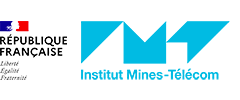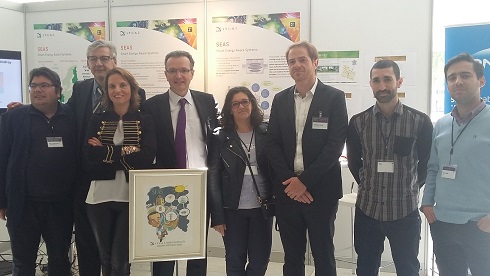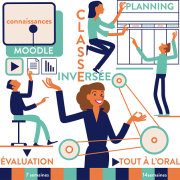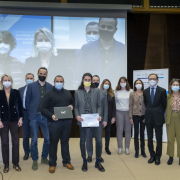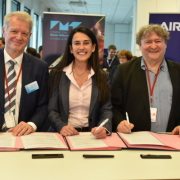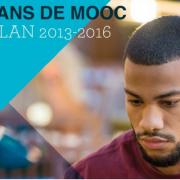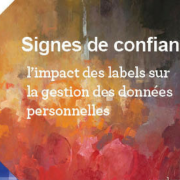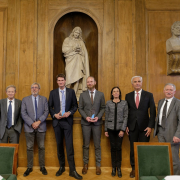Revolution in the energy market: The European SEAS project wins the “ITEA Award of Excellence for Innovation and Business Impact”
The Smart Energy Aware System (SEAS) project brought together industrial and academic partners from 7 European countries over a 3-year period. The goal was to allow all stakeholders in the electricity market to interact in real time with consumption and production systems in order to optimize overall energy efficiency. Coordinated by Engie, whose key academic partners include IMT, SEAS won the excellence prize at the Digital Innovation Forum 2017 in Amsterdam on May 11th. This prize acknowledges the relevancy of the innovation in terms of its impact on the industry.
The SEAS project is redefining the energy market
Our energy networks are evolving and now require the deployment of new decentralized and intermittent production means, storage solutions, and systems for the intelligent measurement and control of consumption and production. They present new constraints and opportunities that must be integrated into the architecture of current energy networks.
SEAS provides the energy community with solutions enabling these services to be understood and combined in order to interact and contribute to improving the overall network performance.
How ?
Usage of semantic web technologies allows the user to adopt language that is clearly understandable to machines (known as ontology) in order to describe capacities, properties, exchanged data as well as different types of interactions between the objects and services in the network.
The SEAS ontology can understand and match the main standards used in the fields of energy, machine to machine dialogue, the Internet of things, electric vehicles, smart homes and smart buildings
Consequently, the job of adapting objects or services that are already compatible with at least one of these standards is significantly reduced. Additionally, an object or service belonging to a domain can communicate and interact with objects or services in other domains.
This harmonization work allows for more fluid exchanges and results in faster attainment of a critical mass of participants.
Secondly, SEAS has developed an original architecture adapted to the current and future organizational forms of energy networks. It does not force participants to transmit information via a central platform that would, de facto, constitute an authority on information exchanges. It also offers mechanisms allowing low-power network nodes to dialogue using the semantic formalism recommended by SEAS.
Lastly, the SEAS project adopts an open innovation approach. The ontology and architecture documents are open-access on the site https://itea3.org/project/seas.html. They are also undergoing a standardization process with the W3C, the OneM2M consortium and the ETSI.
What new skills and stakeholders ?
SEAS brings digital solutions that will pave the way toward energy intermediation markets. By presenting this award on May 11th, ITEA considered that the project had created and demonstrated innovations that are vital to the emergence and development of the energy services market.
Stakeholders that are able to process information and offer the most satisfactory combinations of services will be in a great position in the future. Will the current energy giants be able to carve out leading positions, at a time when the main digital players are seeking new opportunities to harness their technology and expertise?
Innovation driven by IMT and its partner Armines
Several researchers from a number of IMT’s graduate schools (IMT Atlantique, Mines ParisTech, Mines Saint-Etienne, Télécom Paris and Télécom SudParis) have made significant contributions to the SEAS project.
Amongst these contributions are two major innovations. IMT Atlantique committed to the development of IT architecture that enables the retrieval of individuals’ consumption data in order to better adapt the distribution of energy over the network. At the same time, Mines Saint-Etienne applied its knowledge of web semantics for standardized communications between machines speaking different languages.
Partners of the SEAS project
Armines, Answare, Asema Electronics, BeNomad, CEA, CNR, Clipsol, Defne, Ecometering, Ecro SRL, EKE Finance, Engie, Empower, Enerjisa, Evoleo Technologies, Foreca Oy, Fortum, GAC Group, ICAM, ISEP, ITRON, Innova, Institut Mines-Télécom (IMT), Kerlink, LNL Elektrik Elektronik Bilisim ve Danismanlik Ltd. Sti., Planet Media, Soltech, SimBT Inc., Siveco Romania SA, Ubiant, Universidad Politecnica de Valencia, University of Girona, VTT, Virtual Power Solutions SA.
To find out more about the SEAS project:
https://itea3.org/project/seas.html
